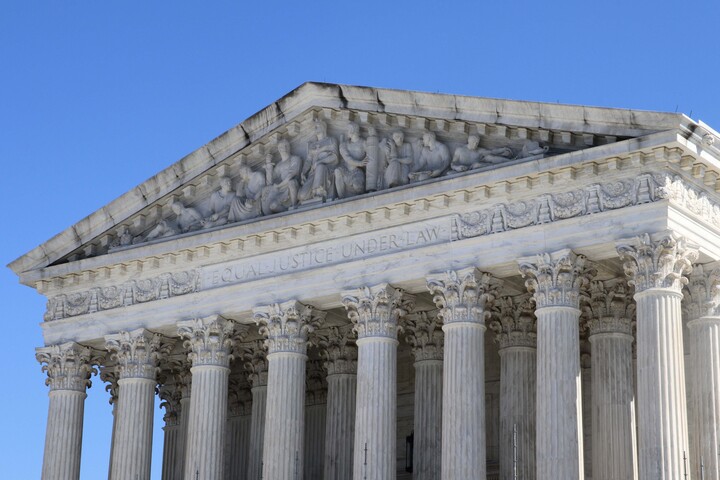WASHINGTON – Two Indian companies argued before the Supreme Court Monday about whether the U.S. legal system can rule over their case.
In 2005, Devas, an Indian multimedia company, and Antrix, a government-owned Indian space company, signed a space and satellite agreement that would have given Devas access to two satellites owned by Antrix.
Antrix broke the agreement in 2011, due to national security concerns. Devas is now seeking $552.5 million plus interest, an amount set by an international mediator.
“[The award is] worth little if no courts can enforce it,” said Aaron Streett, a lawyer for Devas.
The outcome of this case could influence which foreign cases can be brought to U.S. court in the future. It could also impact whether foreign corporations can confirm compensation from a foreign dispute in the U.S., which could potentially overturn 67 years of precedent. If the court rules in favor of Antrix, the U.S. could initiate a reinterpretation of how foreign compensation would be enforced, encouraging other countries to follow.
Antrix argued that this dispute does not belong in the U.S. legal system because Antrix and Devas are both private Indian companies. Antrix is owned by the Indian government but is legally separate from the government under the Indian Companies Act.
“[The conflict arose] exclusively between Indian citizens in India under an Indian contract with a dispute resolution system in India [that was] to be decided by an Indian court,” said Carter Phillips, one of the lawyers for Antrix.
The Indian Supreme Court had ruled in favor of Antrix citing fraud on Devas’ side of the original agreement. However, Devas brought the case to a U.S. district court, which confirmed their award. Antrix appealed, taking the case to the 9th U.S. Circuit Court of Appeals, which overturned the lower court and ruled in Antrix’s favor.
The 9th Circuit is the only circuit to state that the Foreign Sovereign Immunities Act requires foreign states to have sufficient connections to the U.S. for a U.S. court to hear the cases.
“There’s nothing really in the [law] that you can point to that requires minimum contacts [connections]… So it’s not really a very well grounded argument,” said Robert Kry, a lawyer who wrote a brief in support of Devas.
Devas appealed again, and the case was sent to the Supreme Court.
In CC/Devas (Mauritius) Limited v. Antrix Corp. Ltd., the Supreme Court could determine whether Devas has to show that the case and its participants have enough connections to the U.S. in order to sue Antrix in U.S. court.
During the oral arguments Monday, the Supreme Court considered two main points of contention: First, whether foreign states are “persons” protected by the U.S. Constitution. This would determine whether Antrix, a company incorporated in India, can be considered a “person” under the U.S. legal system.
“Antrix is the alter ego of India,” said Matthew McGill, counsel for Devas, who said Antrix is not protected by the U.S. Constitution. “India is not a natural or artificial person under the [U.S. Constitution].”
The second point of contention is whether foreign states have to prove sufficient connections to the U.S. to bring their case to the U.S. legal system.
According to Phillips, this is “beyond the limits of what Congress can regulate” and the Supreme Court could “disrespect” the Indian Supreme Court if it were to continue “intruding” and rule against Antrix.
Phillips said Antrix should be protected by the U.S. Constitution as a “person,” and under the Fifth Amendment, Devas would be required to prove that Antrix is sufficiently linked to the U.S. before the case can be seen by the U.S. court.
However, the justices raised concerns about inconsistencies in Antrix’s argument. Their claims, based on the U.S. Constitution, were different from their claims in the lower courts, which were based on the Foreign Sovereign Immunities Act.
Associate Justice Elena Kagan said the case may not be ready for the Supreme Court if Antrix chooses to argue the case based on the U.S. Constitution instead of their previous argument based on the Foreign Sovereign Immunities Act.
“We are not the people to evaluate this in the first instance when neither the 9th Circuit nor any other circuit has done so,” Kagan said.
If the Supreme Court decides to proceed with the case, there could be two possible outcomes.
One could be that the Supreme Court sides with Devas, which would overturn the appeals court.
The second could be that the Supreme Court sides with Antrix, which could require foreign entities to prove a connection to the U.S. before their cases are heard in U.S. courts. Other countries could apply similar standards.
“That would be a narrow interpretation,” Kry said. “The concern would be that that would then encourage other countries to reach that same interpretation.”
Lawyers for Antrix however, argued that this narrow interpretation would be a good thing for the U.S.
“Why would U.S. courts want to waste their resources resolving a dispute of another country?” Phillips asked. “The U.S. courts don’t have the power to dictate to the world what’s fair and just.”
A ruling is expected before October 2025.


